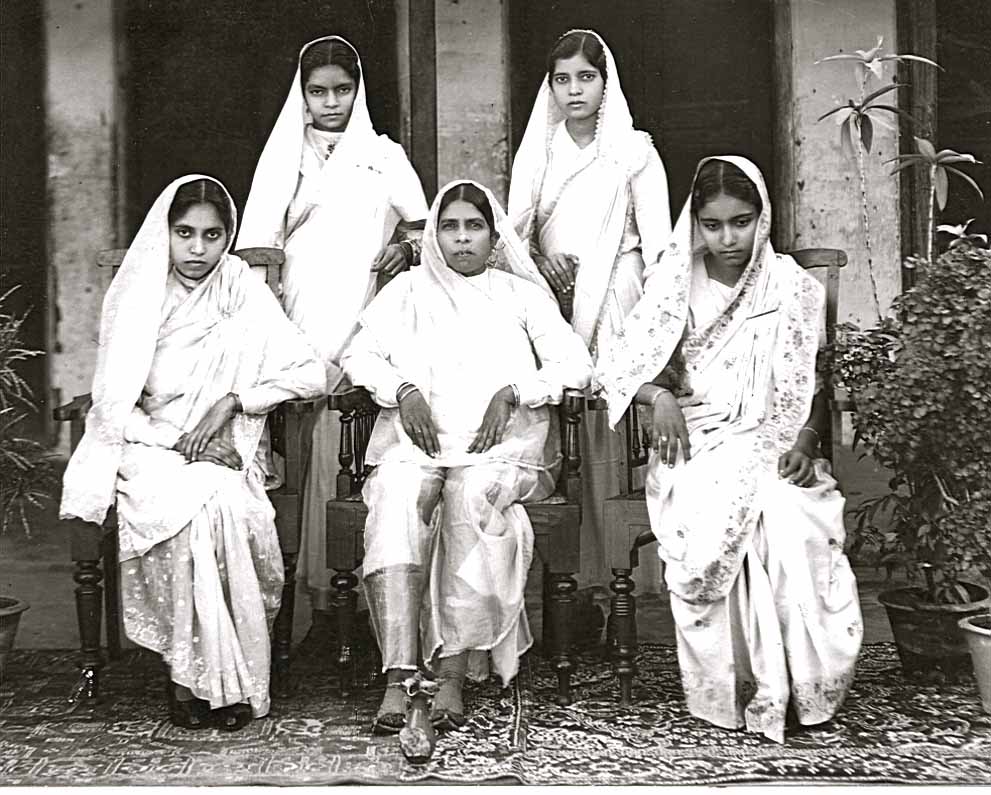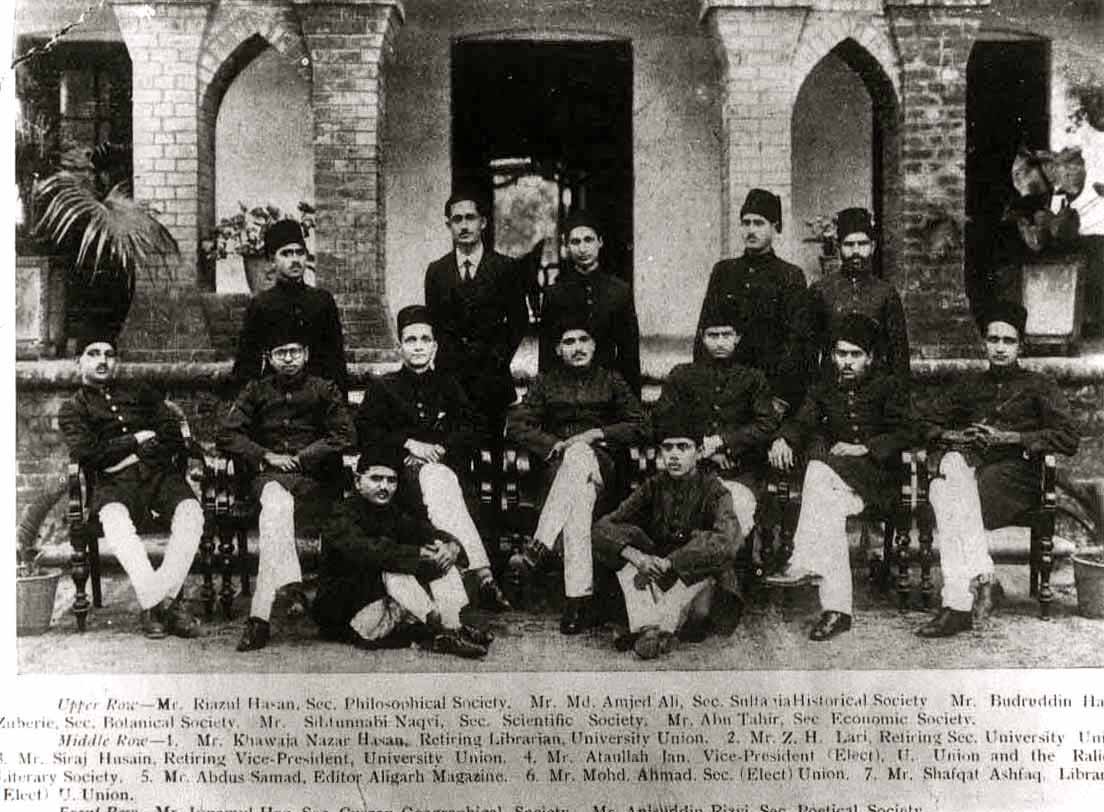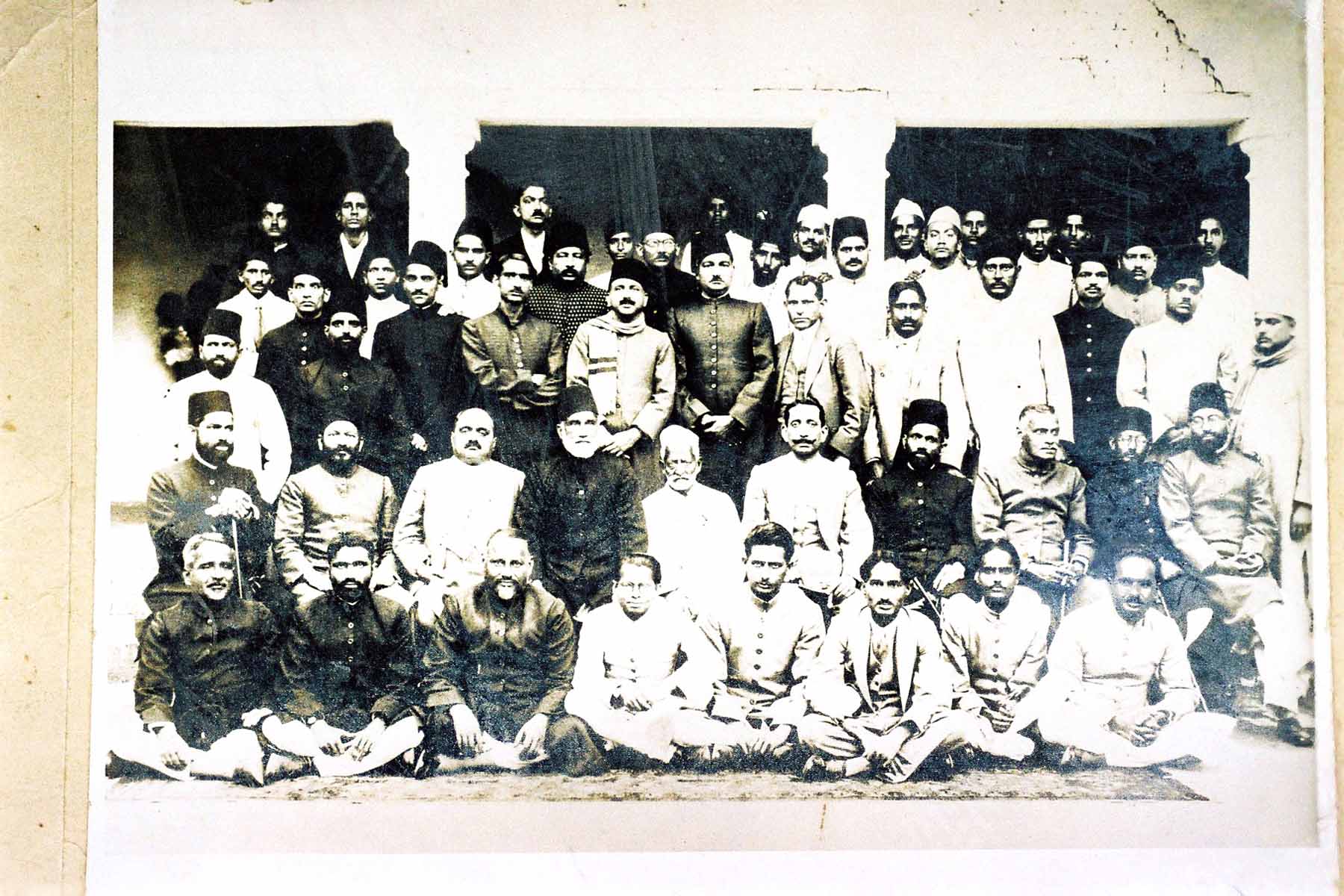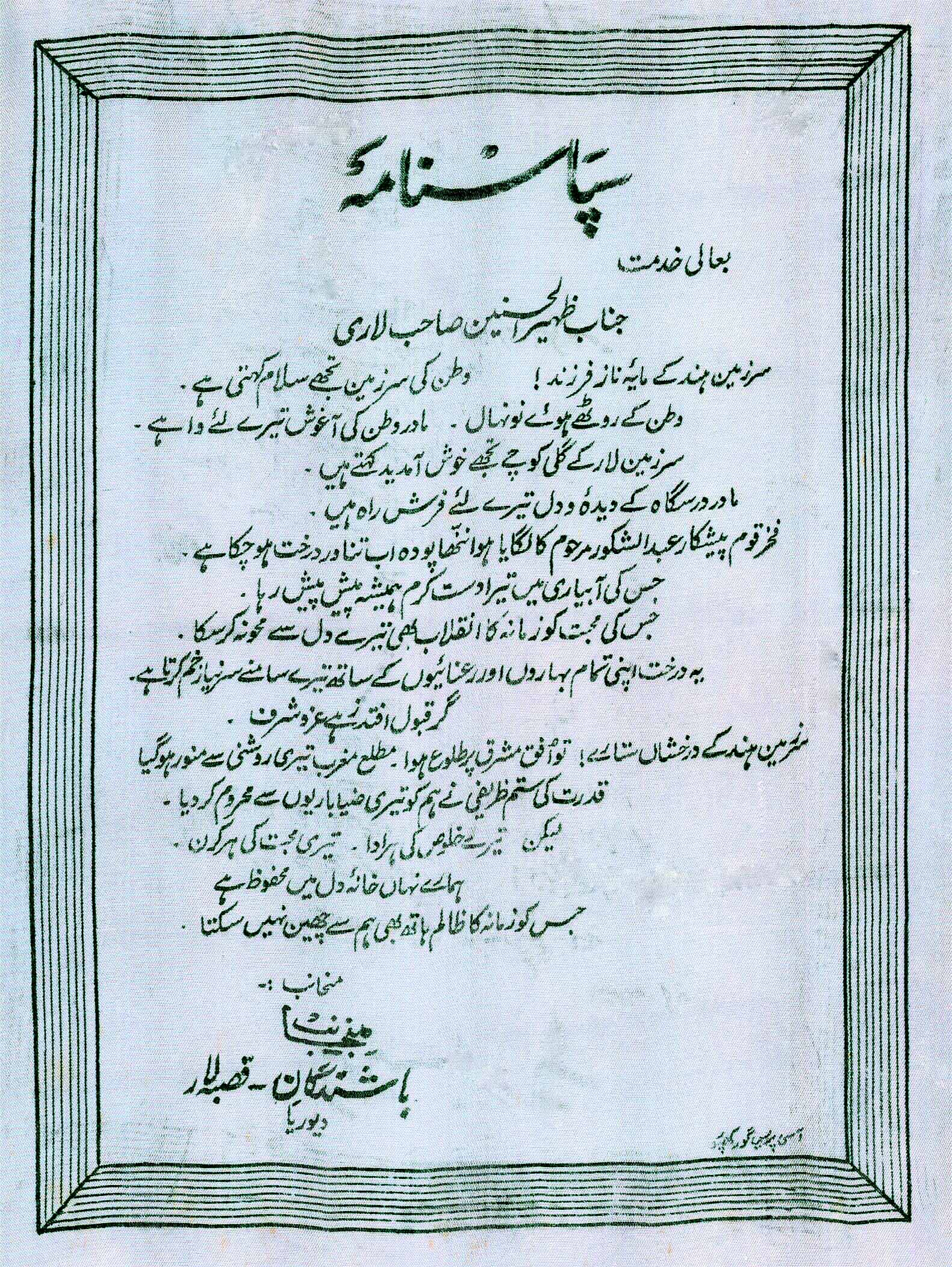Gorakhpur
I was born on Friday, 28 Shaban, 1355 Hijri in Gorakhpur where my father, Zahirul Hasnain Lari (1907-1972) had started practice as a lawyer after graduating from Aligarh Muslim University (AMU). He was sent down from AMU for opposing the invitation to the English Deputy Commissioner to inaugurate the student union, of which he had been elected secretary. But he was hailed by Jawaharlal Nehru, who invited and took him to the All India Political Parties Conference at Delhi.
My father was elected to the U.P. Legislative Assembly on a Muslim League ticket in the first All India provincial elections held in the winter of 1936-37, against a Muslim Momin party candidate supported by the Congress. The election was fought on the basis of the Act of 1935, which was opposed by both Congress and League, but both participated in the elections, and later accepted it as the provisional constitution of the two new independent countries with amendments.
The Act provided for Dyarchy, a system of double government in the Centre. The Viceroy of India to control India’s finances, defence, foreign affairs, the British Indian Army, the Reserve Bank of India and the Railway Board. The Dyarchy, which had been established in the provinces by the Act of 1919, came to an end. Sindh and Bombay, Bihar and Orissa were split into the separate provinces. Burma and Aden were made independent of India. The parts of the Act intended to establish the Federation of India never came into operation.
The issue in the 1937 election was complete autonomy within the British Commonwealth, self-government for provinces, and adequate safeguards for minorities.
The Indian National Congress emerged as the largest party with 707 (44.6%) out of 1,585 provincial assembly seats. It won an absolute majority in six provinces, attracted enough members in two others to form governments in eight provinces, and became a coalition partner in three Muslim majority provinces.
The All-India Muslim League emerged as the second largest party in India, with 106 (6.7%) provincial assembly seats. It did poorly in the provinces that now constitute Pakistan. It won one seat in Punjab, none in Sind and NWFP, and Baluchistan was not yet constituted a province. In Bengal with majority Muslim population, Congress won 54, Muslim League 37 and Krishak Praja Party 36 seats. Therefore All-India Muslim League had to form coalition government under the leadership of AK Fazlul Huq the leader of Krishak Praja party in Bengal.
Jinnah had entered politics as a firm believer in India’s common nationality and joint electorates. His believed that even if the Muslims and non-Muslims are returned to the Legislatures by separate electorates they should join hands to form government in all provinces as well as in centre. He presided over a meeting of the U.P. Muslim League Parliamentary Board on 7th May 1937 in Lucknow, in which it was decided that the Muslim League party would cooperate with the Congress in the Assembly on the basis of an agreed program but would not merge in it. The Quaid-i-Azam Muhammad Ali Jinnah (1876-1948), who was once considered an ambassador of Hindu Muslim unity, requested the Congress to form a government with two representatives of the Muslim League in the Muslim minority provinces of Bombay and U.P., where the Muslim League had won 18 (10.29%) out of 175 and 26 (11.40%) out of 228 seats respectively. The Congress agreed only if the old Congressite Jinnah in Bombay, and the Khilafat and Unity party veteran Chaudhry Khaliquzzaman (1889-1973) in U.P., merged the Muslim League parliamentary parties into Congress. Mr. Cowasjee Jehangir, who represented Jinnah and Patel on behalf of Congress met in Bombay, while Chaudhry Khaliquzzaman and Maulana Azad met in U.P., but to no avail. The Congress rejected the idea because it did not believe in communal separatism. And the idea that 23% Muslims should have the same share in power and authority as 77% Hindus, was not acceptable to them.
This annoyed Mr. Jinnah who stated, ‘When the Congress Ministries were formed, the Muslim League was an anathema to them. The Muslim League was ordered to liquidate itself. The members of the Muslim League were told to abjure their allegiance to this body (Muslim League) before the Congress could even touch them’. The Governor of Bombay, Lord Brabourne, reported to the viceroy that, ‘Jinnah went on to tell me some of his plans for consolidating the Muslim League throughout India and how he is doing his utmost to awaken the Muhammedans ... His policy is to preach communalism morning, noon and night’.
The Muslim League was lucky because the Congress ministries did not last long. On 3 September 1939, British Prime Minister Neville Chamberlain announced the commencement of war with Nazi Germany. The following day, the Viceroy, Lord Linlithgow, announced that India had entered the war along with Britain. The Congress protested against taking Indian into war without consulting them. On 14 September, the Congress demanded immediate independence with a constituent assembly for India; when this was refused, its eight provincial governments resigned on 10 November 1939.
The Quaid asked Muslims to help the British Raj and observe a day of deliverance from the Congress ministries on 22nd December 1939 and formed anti-congress and pro-Muslim League ministries in a number of provinces, which allowed the Muslim League to organize itself.
Now to Jinnah, Hindus and Muslims were not only merely separate nations but must have separate homelands and form autonomous and independent countries. He described India as a sub-continent, which had also different Hindu castes between which there is no inter-dining or inter-marriage to form separate States. The present unity of India dates back to the British conquest and maintained by British bayonets. To those who opposed Jinnah, this was untrue and unhistorical as there were Hindu and Muslim kingdoms and rulers but India was never divided in Hindu and Muslim India. Hindu and Muslims lived together as the same people politically on the basis of talent and ability. The Villages in which the nation lived had autonomy in which Hindu and Muslims participated irrespective of their religion as majority of them belonged to same racial stock.
Jinnah referred to dangers and difficulties, which Muslims had to face since January 1939. The Vidya Mandir Scheme in Nagpur, the Wardha scheme, the ill treatment and oppression of minorities in the Congress governed provinces and and some states. The greatest danger in Jinnah’s opinion, which Muslims faced, was the possible inauguration of Federal scheme under the Act of 1935. He said that up to declaration of the war, the Viceroy had never thought of me. But soon after I received an invitation to meet His Excellency side by side with Gandhi. Viceroy’s invitation was the first shock to Congress High Command and they have not recovered from that because every time afterward the same procedure was followed by His Excellency. Jinnah said that we stand unequivocally for the freedom of India. But it must be freedom for all the peoples and communities that inhabit this country and not one section or one caucus. I could never think that that there could be a gentleman’s agreement between the Congress and Government. Providence came to our help and the gentleman’s agreement was broken and the Congress went out of office. They are now sorry for it. They want to come back. But how can they do it now. Gandhi called me brother with the difference that brother Gandhi has three votes and poor me only one. Why this camouflage, why this coercion of British Government why this threat of civil disobedience Why should not Gandhi come out openly as representing proudly the Hindus and let me meet him as a proud representative of the Muslims for a settlement … We want to be arbiters of our own affairs and the future of 9 crores of Muslims cannot be left to others … Notwithstanding thousand years of close contact, nationalities, which are as divergent today as ever cannot be at any time expected to transform themselves into one nation merely by means of subjecting them to a democratic constitution and holding them to a democratic constitution and holding them forcibly together by unnatural and artificial methods of British parliamentary Statutes. What the unitary Government of India for 150 years had failed to achieve cannot be realized by the imposition of Central Federal Government.
Jinnah said that the problem in India is not of inter communal character but manifestly of an international one, and it must be treated as such. The only course open to us all is to allow the major nations separate homelands by dividing India into autonomous states. The history of the last 12 hundred years has failed to achieve unity and has witnessed during these ages, India always divided into Hindu India and Muslim India. The present artificial unity of India dates back only to British conquest and is maintained by the British bayonet. Out of 11 provinces 4 provinces where the Muslims dominate more or less, are functioning notwithstanding the decision of the Hindu Congress High command to non-co-operate and prepare for civil disobedience.
Referring to this, my Bengali friend, Marxist intellectual Badruddin Umar wrote, “What was quite amazing during the struggle for independence in the 1940s was that Muslims of the clearly Hindu majority areas in India, like the United Provinces, Bihar, Assam and the southern provinces, joined the ranks of the Muslim League in large numbers in demanding Pakistan which, according to the Lahore Resolution itself, did not include their areas. This was a tragic historical example of how emotionally-charged, powerful political propaganda can sweep away minimal common sense, judgement and even consideration of thoughtful self-interests, and create political blindness in the masses, and also in the literate and highly educated sections of the people.”
I have fond memories of Gorakhpur, because it then included Lar Town and village Manjharia with our courtyard house, and our village with mango and lychee orchards. We used to reach it on a bullock cart, as there were no roads and bridges, and therefore bullocks alone could wade through the agricultural fields and various waterborne hazards without being drowned or washed away by strong currents or heavy rainfalls.
We spent the long summer months chasing monkeys especially Langoors (baboons), climbing trees, running, riding and head bashing with goats and lambs, wrestling, playing kabadi and gulli danda with village boys, without any communication with the outside world. Here one of my ancestors had arrived with his nose cut for participating in the 1857 War of Independence against the British. He encountered a Hindu landlord, who offered him the village as a fee for pleading his case against the sarkar for confiscating their riyasat. Therefore our village was also known as nak kate sahib ka gaon and our peasants were Hindus.
Gorakhpur and the Gorkhas of Nepal derive their name from Saint Gorakhnath (11th century) whose samadhi shrine (tomb) and gaddi (prayer seat) are in Gorakhpur. He is the founder of an order of ascetics called Nath Yogis and Kanphata (ear-split) yogis because of the large rings that they wear in their ears.
Abdul Quddus Hanafi Ghaznavi Chishti Gangohi (1456-1537), a Sufi poet and leading Chisti shaikh wrote “Rushd Nama”, a work that sought to reconcile the teachings of Gorakhnath with Chisti Sufism. Gorakhnath is considered immortal and invisible, an eternal sage who had been around for thousands of years watching the welfare of humanity, and the inspiration behind Kabir (poet and saint), Guru Nanak (founder of Sikhism), and Raja Bharatrihari (Sanskrit grammarian and poet). Gorakhnath is mentioned in the songs of all of them.
It is a pity that Goraknath temple in Gorakhpur has now become the seat of intolerance and extremism and its Mahant Yogi Adityanath who had become chief Minister of Uttar Pradesh on 19 March 2017 is a right-wing Hindutva firebrand and the founder of Hindu youth organistion the Hindu Yuva Vahini which is involved in communal violence and predicted to become prime minister of India on an anti-Muslim and anti-Christian manifesto.
In Gorakhpur is the town of Kasia, known, variously, in history as Kushinagara, Kushavati and Kushinara. It was built as capital of the Malla confederacy by Kusha, son of Lord Rama. After Lord Rama’s renunciation of the world, Kuhsa left Kushwati for Ayodhya. And his cousin, Chandra Ketu, son of Lakshman, took over this region.
H. H. Wilson made the suggestion in 1854 that ancient Kushinagara and Kasia were the same. After excavations the main stupa was exposed in 1876 AD, and a 6.10 meter long golden statue of the reclining Buddha was discovered. It was here that Buddha (the Awakened or the Enlightened) attained mahaparinirvana, or the final deathless state, and abandoned his earthly body, c. 483 BCE. Now, Kushinagar is one of the four major Buddhist pilgrimage destinations. The other three are: Lumbini (birthplace of Buddha) in Nepal; Bodh Gaya (place of enlightenment) in Mahabodhi Temple, Bihar; and Sarnath (first teaching) in U.P.
To the Buddhist there is the noble eight-fold path to the cessation of dukkha, that includes the virtues of Right Understanding, Right Thought, Right Speech, Right Action, Right Livelihood, Right Effort, Right Mindfulness, and Right Concentration. It is a pity that followers of this great religion are now heaping immense amount of misery on the Muslims of Burma.
About 15 kilometers, from Kushinagar is Pavapuri, the second capital of the Malla Dynasty, where Lord Buddha's contemporary Lord Mahavira was born, and took his mahaparinirvana, at his maternal uncle's palace. Lord Mahavira, ‘Great Hero’ (599 – 527 BC), was the 24th and the last Tirthankara of Jainism, who established the central tenets of Jainism, the oldest religion of India.
Jain theology states that Jainism has existed since eternity and it has no beginning and no end. The first Tirthankar, Rushabhdev/Adhinath, appeared prior to the Harappan Civilization. The swastika symbol and naked statues resembling Jain monks, that archaeologists have found among the remains of the Harappan Civilization, tend to support this claim. There are five basic ethical principles (vows) prescribed by Jainism:
Non-violence (Ahimsa) - to cause no harm to living beings.
Truth (Satya) - to speak the truth always in a harmless manner.
Non-stealing (Asteya) - not to take anything that is not willingly given.
Celibacy (Brahmacarya)- not to indulge in sensual pleasures.
Non-attachment (Aparigraha) - to detach from people, places, and material things.
It is a pity that Gujrat, where Jainism is widespread, has given birth to a leader like Modi who has massacred Muslims in Gujrat and Kashmir.
The fact is that there is no religion or religious sect in whose name humanity has not suffered.
Gorakhpur is the site of Sant Kabir Nagar, where the famous poet-saint Kabir (c.1440-1518) of the Bhakti movement spent his last years after he was banished from Varnasi (Banaras) in 1495. After his banishment he wrote his famous dohas and he has both dargah tomb and samādhi mandir in Gorakhpur to satisfy both his Muslim and his Hindu followers, both groups believing that he belonged to their faith. Kabir himself wrote;
‘Jogi call upon Gorakh,
Hindus chant the name of Ram
Musalman say one Khuda
Lord of Kabir pervades everything.’
Gorakhpur also contains the house where the great Urdu fiction writer Munshi Premchand (1880-1936) lived and worked from 1916 to 1921, and composed his first literary work. A park is named after him.
In Gorakhpur is the house where the noted Urdu poet, Firaq Gorakhpuri (1896-1982) was born. He was selected for Indian Civil Service but resigned to follow Mahatma Gandhi’s Non-Cooperation movement, and went to jail. He later joined Allahabad University as a lecturer in English Literature. He wrote;
‘Sakut-e-sham mitao bahut andhera hay
sukhan ke shama jalao bahut andhera hay
dayar-e-gham mein dil-e-beqarar chut gaya
sambhal ke dhudhane jao bahut andhera hay
ye raat wo ke sujhe jahan na hath ko hath
khayalo dur na jao bahut andhera hay
laton ko chehare pe dale wo so raha hay
kaheen zaya-e-rukh ko churao bahut andhera hay’
Also in Gorakhpur is Chauri-Chaura, where on 4 February 1922 volunteers participating in the peaceful non-cooperation movement of Mahatma Gandhi turned violent and burnt down the police station, forcing the Mahatma to call off his movement on 12th February 1922, and go on a five-day fast as penance for lives lost.
Gorakhpur is the home of the sweet Bhojpuri language. An estimated 70 million people in Uttar Pradesh and 80 million people in Bihar speak Bhojpuri. Bhojpuri Association of North America (BANA) claims that there are 180 million speakers in the world. It is spoken in the western Bihar, the northwestern Jharkhand, and the eastern Uttar Pradesh (UP), as well as in the Nepal Terai. Bhojpuri is a recognized language in Nepal and Mauritius.
According to the history of Indian languages, Sanskrit language gave birth to Prakirt language and from it emerged seven Apabhransas (Apabhramsa, Avahansa) including Awadhi apabhransa. Bhojpuri originated from Awadhi, and is older than Hindi that developed in 15th century. Therefore, UNO has given it status of a language but India has not because of political considerations. UNO has published declaration of human rights in 154 languages of the world and Bhojpuri is one of them. In the 1960s, the first president of India, Rajendra Prasad, who hailed from Bihar, asked Actor Nazir Hussain to make a movie in Bhojpuri, which eventually led to first Bhojpuri film's release in 1963.
Gorakhpur was the headquarter of North-Eastern Railway, where the choti and bari (small and broad gauge) railway lines meet. The ride to mountain resorts on it are very interesting as the train often creaked, the engine got too hot and stopped at various strange places to take rest and cool down in the mountains, where people came out to breath the mountain air and enjoy the scenery. On one such occasion when the train stopped and people came to know that the Quaid-i-Azam was travelling on it, people gathered round his compartment till he came out, and Raja Saheb who was with him told me that one person asked him as to what would happen after Pakistan is created. The Quaid-i-Azam replied, ‘hum badshah banega’.




